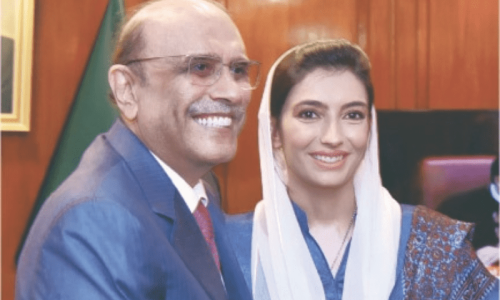ISLAMABAD: The Election Commission of Pakistan (ECP) has decided not to extend the terms of the five election tribunals constituted to decide petitions filed after the 2013 general elections.
The tribunals’ terms will expire on Aug 31.
This was confirmed by ECP Secretary Babar Yaqoob Fateh Muhammad during a press briefing on Saturday.
He dispelled the impression that the decision was linked to the verdict of the Lahore election tribunal headed by retired judge Kazim Ali Malik who had ruled against former National Assembly speaker Ayaz Sadiq on a petition filed by Pakistan Tehreek-i-Insaf chief Imran Khan.
He said the decision to not extend the terms of all five election tribunals — three in Punjab and one each in Khyber Pakhtunkhwa and Sindh — had been taken by the ECP on June 22, long before the Lahore decision was handed down.
The election tribunals were independent in the discharge of their duties, with no interference or pressure whatsoever from the ECP, he said.
The ECP secretary said that letters had been written to the registrars of all provincial high courts, asking that the undecided petitions be heard by their sitting judges.
He said 17 petitions were pending in Punjab, four in Sindh and one each in Balochistan and KP.
As many as 14 tribunals — five in Punjab and three each in KP, Sindh and Balochistan — were appointed on June 3, 2013 for one year. Depending upon their workload and the number of cases pending before them, the tribunals were given extensions until August 31 but they still failed to dispose of all the cases despite the passage of 27 months.
At one point, the ECP had planned to double the number of tribunals, but this idea was dropped without any explanation.
Asked to comment on rumours that three ECP members were considering resigning, the secretary said he could not comment on the matter without asking the members.
He also confirmed that two political parties, the PTI and PPP, had not submitted their statements of assets as required under the law and the deadline had expired.
He said election symbols could not be allotted to candidates of parties that did not file the statements.
Barrister Afzal Hussain, who has been involved with several election petitions and has appeared before the tribunals, told Dawn that the ECP should reconsider its decision and give a final extension to them for another couple of months.
He said that if sitting judges of the high courts were to be assigned this task, the chief justices should be requested to designate full election tribunals to hold daily hearings of petitions for 30 days during which no other judicial work should be assigned to them.
Many believe that the ECP should have taken a timely decision to either increase the number of tribunals or replace the ones whose performance was lacking, instead of giving them extension after extension.
The ECP has never acted against the tribunals, many of whom flagrantly violated the law by allowing adjournments beyond the period specified.
Published in Dawn, August 30th, 2015
On a mobile phone? Get the Dawn Mobile App: Apple Store | Google Play













































